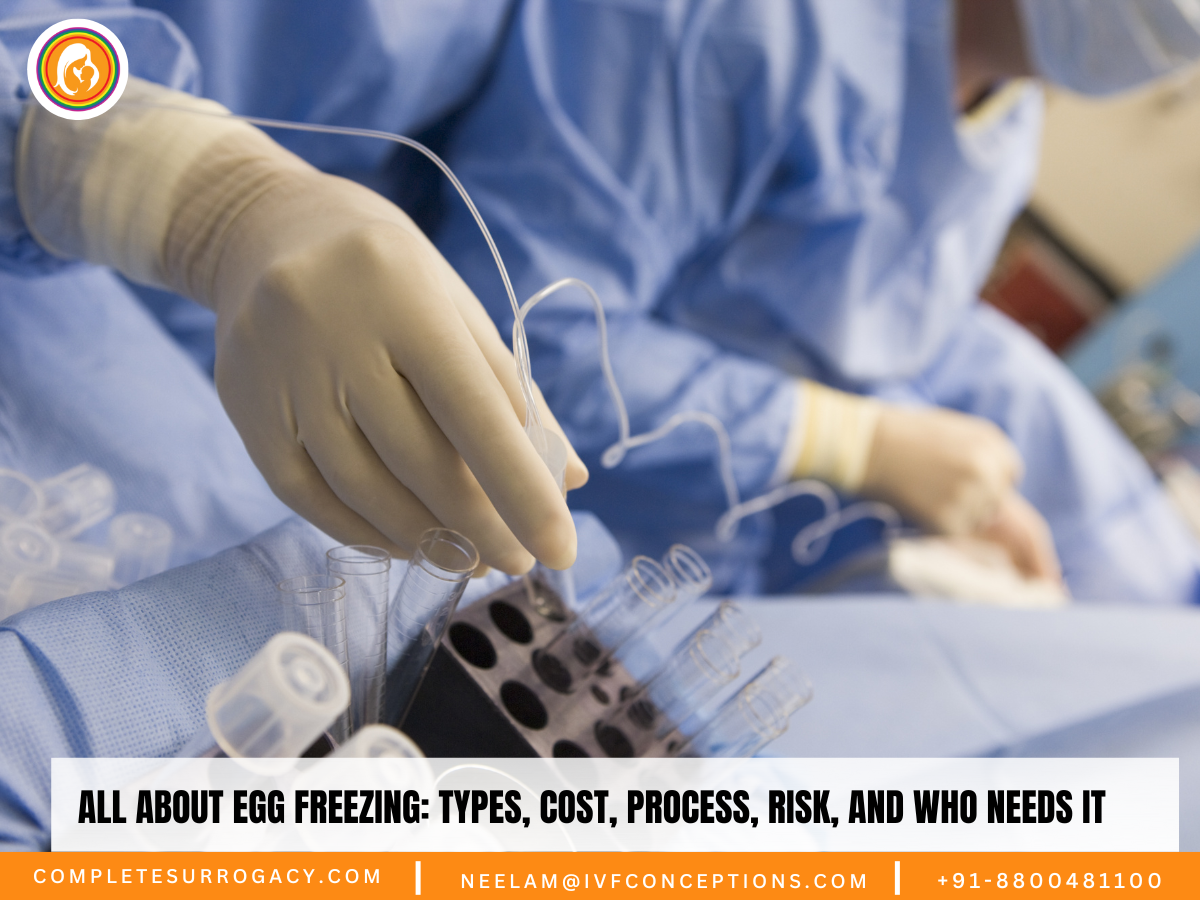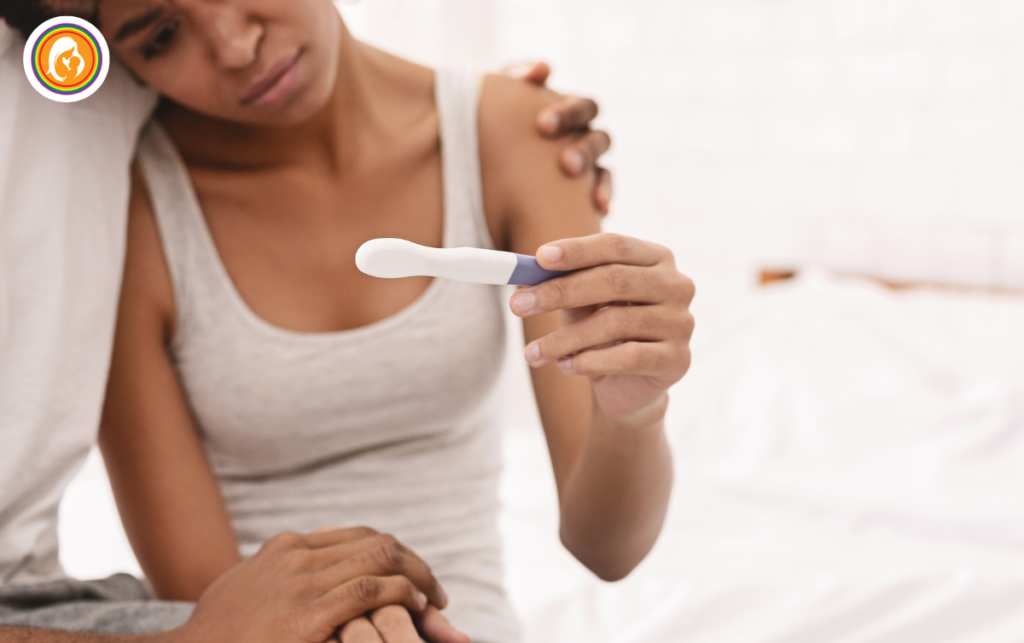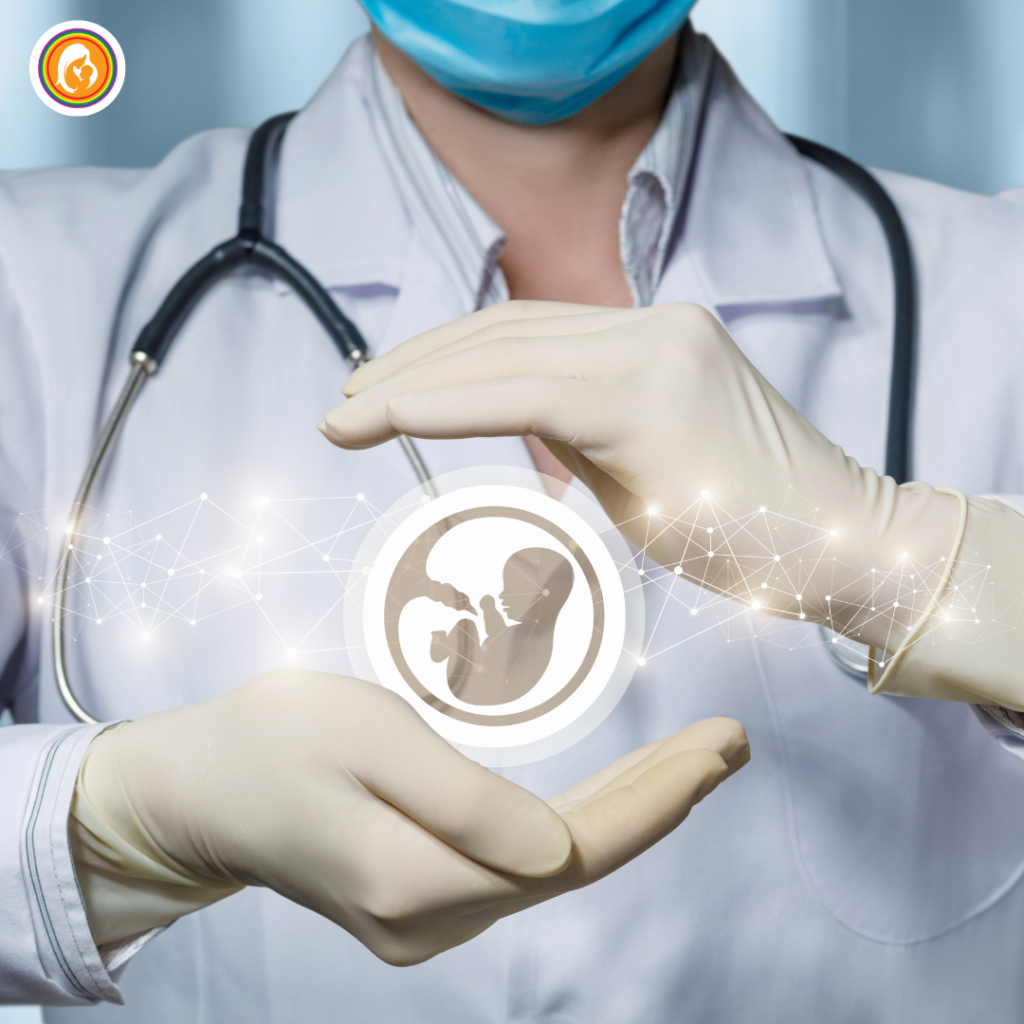Can You Become Pregnant after Menopause? A Comprehensive Guide

Some studies have shown that it is possible to get pregnant with the help of Platelet-Rich Plasma (PRP) Therapy after menopause, although each case is unique. In today’s world, many couples are choosing to delay parenthood due to personal or professional reasons. However, it’s crucial to understand the biological limitations and potential risks associated with pregnancy later in life, especially after menopause.
Can You Become Pregnant after Menopause? While it is biologically challenging, advancements in fertility treatments such as PRP therapy for fertility and egg donation have made it possible for some women to carry a pregnancy after menopause.
- Book an online appointment: Get a free online consultation.
- Call\W:+91-8800481100 Email:neelam@ivfconceptions.com
The success rate of pregnancy after menopause can vary greatly depending on individual health and fertility treatment options. Consulting with a fertility expert is essential to assess options like egg freezing after menopause or using donor eggs for the best chance of a successful pregnancy.
This comprehensive guide will explore the relationship between menopause and pregnancy, the possibilities of conception after menopause, and the various options available for those seeking to build their families later in life.
More Resources to Read:
Infertility Treatment and Surrogacy Process
9 Factors To Improve IVF Pregnancy Rate
International Surrogacy Options Worldwide
Surrogacy Guide for Surrogate Mothers
Understanding Menopause and pregnancy
Menopause is a natural biological process marking the end of a woman’s reproductive years. It’s officially diagnosed when a woman has gone 12 consecutive months without a menstrual period. To fully grasp the implications of menopause on fertility, it’s essential to understand its stages and physiological changes.
Stages of Menopause
- Perimenopause
- Begins 8-10 years before menopause
- Usually starts in the 40s, but can begin in the 30s
- Ovaries gradually produce less estrogen
- Women may experience menopausal symptoms
- Menstrual cycles continue, and pregnancy is still possible
- Menopause
- Marks 12 months since the last menstrual period
- Ovaries stop releasing eggs
- Average age of onset is 51 in the United States
- Post-menopause
- The period after menopause
- Menopausal symptoms may continue for years
- Increased risk of certain health conditions (e.g., osteoporosis, heart disease)
Hormonal Changes During Menopause
During the menopausal transition, the body experiences significant hormonal shifts:
- Declining estrogen levels
- Fluctuating progesterone levels
- Decreased production of follicle-stimulating hormone (FSH) and luteinizing hormone (LH)
These hormonal changes are responsible for the various symptoms associated with menopause, including hot flashes, mood swings, and vaginal dryness.
Fertility During Perimenopause
While pregnancy is still possible during perimenopause, fertility declines significantly. Here’s what you need to know:
- Ovulation becomes irregular
- Egg quality decreases
- Conception becomes more challenging
- Higher risk of pregnancy complications
It’s important to note that contraception is still necessary during perimenopause if pregnancy is not desired, as ovulation can occur unexpectedly.

Risks of Pregnancy During Perimenopause
Pregnancies during perimenopause carry increased risks for both mother and baby:
- Maternal Risks:
- Gestational diabetes
- High blood pressure
- Preeclampsia
- Increased chance of cesarean delivery
- Fetal Risks:
- Chromosomal abnormalities (e.g., Down syndrome)
- Low birth weight
- Premature birth
The risk of chromosomal abnormalities increases with maternal age:
| Maternal Age | Risk of Down Syndrome |
| 25 years | 1 in 1,340 |
| 30 years | 1 in 940 |
| 35 years | 1 in 353 |
| 40 years | 1 in 85 |
| 45 years | 1 in 35 |
Pregnancy After Menopause: Is It Possible?
Natural conception after menopause is not possible due to the cessation of ovulation. However, advances in reproductive technology have made it possible for women to become pregnant after menopause through assisted reproductive techniques.
Options for Postmenopausal Pregnancy
- In Vitro Fertilization (IVF) with Donor Eggs
- Most common method for postmenopausal pregnancy
- Uses eggs from a younger donor
- Higher success rates compared to using own eggs
- Frozen Embryo Transfer
- Uses embryos frozen before menopause
- Requires planning ahead and preserving fertility
- Ovarian Tissue Cryopreservation and Transplantation
- Experimental technique
- Involves freezing and later reimplanting ovarian tissue
Preparing the Body for Pregnancy After Menopause
For women considering pregnancy after menopause, several steps are necessary to prepare the body:
- Hormonal Therapy
- Estrogen and progesterone supplementation
- Helps rejuvenate the uterus and thicken the endometrial lining
- Uterine Evaluation
- Assessing uterine health and receptivity
- May include hysteroscopy or ultrasound examinations
- General Health Assessment
- Comprehensive medical evaluation
- Management of any existing health conditions
- Lifestyle Modifications
- Maintaining a healthy weight
- Proper nutrition and exercise
- Avoiding alcohol and tobacco
Emerging Research: Can Menopause Be Reversed?
While menopause is generally considered irreversible, recent research has shown promising results in temporarily restoring ovarian function in some postmenopausal women.

Platelet-Rich Plasma (PRP) Therapy
A small study involving 27 postmenopausal women showed intriguing results:
- 11 women regained menstrual cycles within three months of PRP treatment
- Mature eggs were obtained from two women
- One successful IVF pregnancy was achieved
It’s important to note that this research is still in its early stages, and more studies are needed to confirm the efficacy and safety of such treatments.
Ethical and Social Considerations
Postmenopausal pregnancy raises several ethical and social questions:
- Age Limits for Assisted Reproduction
- Debate over appropriate age limits for fertility treatments
- Child Welfare
- Concerns about parenting ability and life expectancy of older parents
- Resource Allocation
- Ethical considerations regarding the use of medical resources for postmenopausal pregnancies
- Psychological Impact
- Potential emotional challenges for both parents and children
Making an Informed Decision
If you’re considering pregnancy after menopause, it’s crucial to:
- Consult with a reproductive endocrinologist specializing in advanced maternal age pregnancies
- Undergo comprehensive health screenings
- Consider the emotional, physical, and financial implications
- Explore all available options, including adoption and surrogacy
- Seek counseling to address any concerns or anxieties
More Resources to Read:
Surrogacy Guide for Surrogate Mothers
Surrogacy Guide for Intended Parents
How does the surrogacy process work
Conclusion
While natural pregnancy after menopause is not possible, advances in reproductive technology have opened up new possibilities for women wishing to become mothers later in life. However, it’s essential to understand the risks, challenges, and ethical considerations associated with postmenopausal pregnancy. By staying informed and working closely with healthcare professionals, women can make the best decisions for their unique situations and family-building goals.
Remember, every woman’s journey is different, and there’s no one-size-fits-all approach to family planning. Whether you’re considering pregnancy during perimenopause or exploring options after menopause, it’s crucial to prioritize your health and well-being throughout the process.
If you’d like to learn more about IVF, Egg Donation, or surrogacy services globally, check out the rest of our website at Complete Surrogacy Agency. We offer legally secure and affordable surrogacy consulting services for FREE.
Complete Surrogacy: Your Trusted Partner in International Surrogacy
At Complete Surrogacy, we have over 15 years of experience in international surrogacy, guiding 4,000+ intended parents worldwide. We provide safe, ethical, and affordable surrogacy solutions for single parents, LGBTQ+ couples, and heterosexual couples.
As members of EFS and ESHRE, we adhere to the highest ethical and professional standards. Our expert team is committed to providing accurate, compassionate, and transparent guidance, ensuring a legally secure and smooth journey to parenthood.
Let us help you build your family with trust, care, and integrity.
Get in touch for one FREE Surrogacy Consultancy!

Frequently Asked Questions About Pregnancy After Menopause
Q1: Can a woman naturally conceive after menopause?
No, natural conception is not possible after menopause because the ovaries no longer release eggs. However, pregnancy can be achieved through assisted reproductive technologies using donor eggs or previously frozen embryos.
Q2: At what age does menopause typically occur?
The average age for menopause in the United States is 51, but it can occur anywhere between 45 and 55 years of age. Some women may experience early menopause before 45.
Q3: Is it safe to get pregnant during perimenopause?
While pregnancy is possible during perimenopause, it carries increased risks for both mother and baby. It’s important to consult with a healthcare provider to understand and manage these risks.
Q4: What are the main risks of pregnancy after menopause?
Risks include a higher chance of gestational diabetes, high blood pressure, preeclampsia, and cesarean delivery for the mother. For the baby, there’s an increased risk of chromosomal abnormalities, low birth weight, and premature birth.
Q5: How is pregnancy achieved after menopause?
Postmenopausal pregnancy is typically achieved through in vitro fertilization (IVF) using donor eggs or previously frozen embryos. The woman’s uterus is prepared with hormone therapy to support the pregnancy.
Q6: Are there age limits for IVF treatment?
Age limits for IVF vary by clinic and country. Many clinics have upper age limits ranging from 50 to 55 years old, but some may offer treatment to older women on a case-by-case basis.
Q7: What is the success rate of IVF for postmenopausal women?
Success rates depend on various factors, including the quality of the donor eggs or embryos used. When using donor eggs, success rates can be quite high, often around 50% per cycle, regardless of the recipient’s age.
Q8: How long does it take to prepare the body for pregnancy after menopause?
The preparation time can vary, but it typically takes 2-3 months of hormone therapy to prepare the uterus for embryo transfer.
Q9: Can menopause be reversed?
Currently, menopause is not considered reversible. However, some experimental treatments, like platelet-rich plasma therapy, have shown promise in temporarily restoring ovarian function in some women.
Q10: What are the alternatives to postmenopausal pregnancy?
Alternatives include adoption, surrogacy, or choosing to live child-free. Each option has its own considerations and should be carefully evaluated based on individual circumstances.
Q11: Is it ethical to have children after menopause?
This is a complex and personal question. Ethical considerations include the welfare of the child, the increased health risks, and societal implications. It’s important to discuss these issues with healthcare providers, counselors, and loved ones.
Q12: How much does IVF with donor eggs cost for a postmenopausal woman?
Costs can vary widely depending on location and specific circumstances, but typically range from $20,000 to $40,000 per cycle in the United States. Additional costs may include medications, genetic testing, and multiple cycles if needed.
Q13: Are there any long-term studies on children born to postmenopausal mothers?
Long-term studies are limited, but existing research suggests that children born to older mothers through assisted reproduction generally develop normally. However, more research is needed in this area.
Q14: How does hormone therapy for postmenopausal pregnancy affect overall health?
Hormone therapy is generally safe when monitored by a healthcare provider, but it can increase the risk of blood clots and other complications. The therapy is typically discontinued once the placenta takes over hormone production during pregnancy.
Q15: What special prenatal care is needed for postmenopausal pregnancies?
Postmenopausal pregnancies are considered high-risk and require close monitoring. This may include more frequent prenatal visits, additional ultrasounds, and specialized testing to monitor both maternal and fetal health.

Author Bio: Neelam Chhagani is an International Surrogacy Expert with 15 years of experience in the fertility and surrogacy domain. As the founder of IVF Conceptions and Complete Surrogacy, she has guided over 4,000 intended parents worldwide on their surrogacy journey to parenthood. Recognized as a trusted authority, she specializes in holistic infertility solutions and third-party reproduction consulting.
Holding an MA in Counselling Psychology and a PGD in Mental Health, Neelam is a proud member of the European Fertility Society (EFS) and the European Society of Human Reproduction and Embryology (ESHRE). She is also a leading surrogacy blogger, providing valuable insights into ethical and practical surrogacy solutions.
Since 2010, committed to supporting ALL family types, Neelam has been passionate about helping intended parents grow their families with compassion, integrity, and a focus on secure and affordable surrogacy options Globally.
Learn more about Neelam:
https://www.ivfconceptions.com/neelam-chhagani-surrogacy-consultant/
https://www.linkedin.com/in/neelam-chhagani-92892229/















I was introduced to Neelam by a friend who worked with Neelam for surrogacy. Neelam is absolutely wonderful. I am a single male and the journey to fatherhood is not that easy. Neelam connected me to a program ideal for my circumstances. She was with me throughout the pregnancy providing advice and guidance along the way. I am so grateful I found her and am thrilled today that I have a beautiful daughter. I highly recommend Neelam to anyone who is on a journey to become a parent. Having a child has changed my world for the better. I wish others success with their own journey and recommend you connect with Neelam to find a path that is best for you.
SA (USA)